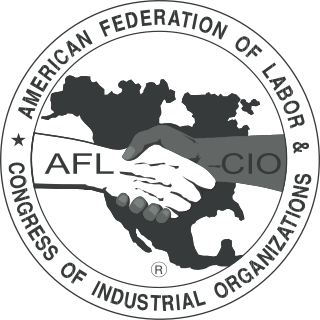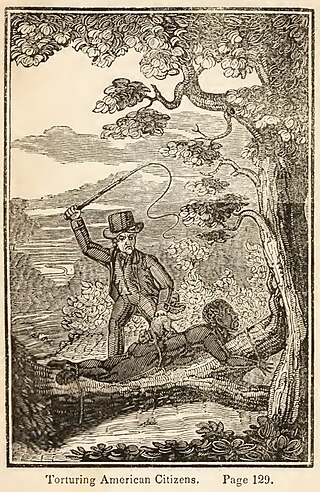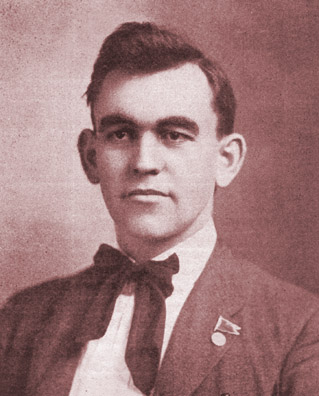This article needs to be updated.(June 2019) |
Contents
| |||||
| Decades: | |||||
|---|---|---|---|---|---|
| See also: | |||||
This article needs to be updated.(June 2019) |
| |||||
| Decades: | |||||
|---|---|---|---|---|---|
| See also: | |||||


Capitalism is an economic system based on the private ownership of the means of production and their operation for profit. Central characteristics of capitalism include capital accumulation, competitive markets, price systems, private property, property rights recognition, voluntary exchange, and wage labor. In a market economy, decision-making and investments are determined by owners of wealth, property, or ability to maneuver capital or production ability in capital and financial markets—whereas prices and the distribution of goods and services are mainly determined by competition in goods and services markets.

Wage slavery is a term used to criticize the exploitation of labor by business, by keeping wages low or stagnant in order to maximize profits. The situation of wage slavery can be loosely defined as a person's dependence on wages for their livelihood, especially when wages are low, treatment and conditions are poor, and there are few chances of upward mobility.

In criminal justice, particularly in North America, correction, corrections, and correctional, are umbrella terms describing a variety of functions typically carried out by government agencies, and involving the punishment, treatment, and supervision of persons who have been convicted of crimes. These functions commonly include imprisonment, parole, and probation. A typical correctional institution is a prison. A correctional system, also known as a penal system, thus refers to a network of agencies that administer a jurisdiction's prisons, and community-based programs like parole, and probation boards. This system is part of the larger criminal justice system, which additionally includes police, prosecution and courts. Jurisdictions throughout Canada and the US have ministries or departments, respectively, of corrections, correctional services, or similarly-named agencies.

The American Federation of Labor and Congress of Industrial Organizations (AFL-CIO) is a national trade union center that is the largest federation of unions in the United States. It is made up of 60 national and international unions, together representing more than 12 million active and retired workers. The AFL-CIO engages in substantial political spending and activism, typically in support of progressive and pro-labor policies.

Thomas Sowell is an American economist, author, and social commentator who is a senior fellow at the Hoover Institution. With widely published commentary and books—and as a guest on TV and radio—he became a well-known voice in the American conservative movement as a prominent black conservative. He was a recipient of the National Humanities Medal from President George W. Bush in 2002.

The Ludlow Massacre was a mass killing perpetrated by anti-striker militia during the Colorado Coalfield War. Soldiers from the Colorado National Guard and private guards employed by Colorado Fuel and Iron Company (CF&I) attacked a tent colony of roughly 1,200 striking coal miners and their families in Ludlow, Colorado, on April 20, 1914. Approximately 21 people, including miners' wives and children, were killed. John D. Rockefeller Jr., a part-owner of CF&I who had recently appeared before a United States congressional hearing on the strikes, was widely blamed for having orchestrated the massacre.
Industrial relations or employment relations is the multidisciplinary academic field that studies the employment relationship; that is, the complex interrelations between employers and employees, labor/trade unions, employer organizations, and the state.

The legal institution of human chattel slavery, comprising the enslavement primarily of Africans and African Americans, was prevalent in the United States of America from its founding in 1776 until 1865, predominantly in the South. Slavery was established throughout European colonization in the Americas. From 1526, during the early colonial period, it was practiced in what became Britain's colonies, including the Thirteen Colonies that formed the United States. Under the law, an enslaved person was treated as property that could be bought, sold, or given away. Slavery lasted in about half of U.S. states until abolition in 1865, and issues concerning slavery seeped into every aspect of national politics, economics, and social custom. In the decades after the end of Reconstruction in 1877, many of slavery's economic and social functions were continued through segregation, sharecropping, and convict leasing.
Employment is a relationship between two parties regulating the provision of paid labour services. Usually based on a contract, one party, the employer, which might be a corporation, a not-for-profit organization, a co-operative, or any other entity, pays the other, the employee, in return for carrying out assigned work. Employees work in return for wages, which can be paid on the basis of an hourly rate, by piecework or an annual salary, depending on the type of work an employee does, the prevailing conditions of the sector and the bargaining power between the parties. Employees in some sectors may receive gratuities, bonus payments or stock options. In some types of employment, employees may receive benefits in addition to payment. Benefits may include health insurance, housing, disability insurance. Employment is typically governed by employment laws, organisation or legal contracts.

Indentured servitude is a form of labor in which a person is contracted to work without salary for a specific number of years. The contract, called an "indenture", may be entered "voluntarily" for purported eventual compensation or debt repayment, or it may be imposed "involuntarily" as a judicial punishment. Historically, it has been used to pay for apprenticeships, typically when an apprentice agreed to work for free for a master tradesman to learn a trade. Later it was also used as a way for a person to pay the cost of transportation to colonies in the Americas.

In United States history, the Gilded Age is a term coined by Mark Twain and used by some historians to refer roughly to the period between 1877 and 1900, which was sandwiched between the Reconstruction Era and the Progressive Era. It was a time of rapid economic growth, especially in the Northern and Western United States. As American wages grew much higher than those in Europe, especially for skilled workers, and industrialization demanded an ever-increasing unskilled labor force, the period saw an influx of millions of European immigrants.

Thomas Joseph Mooney was an American political activist and labor leader, who was convicted with Warren K. Billings of the San Francisco Preparedness Day Bombing of 1916. It quickly became apparent that Mooney and Billings had been convicted based on falsified evidence and perjured testimony; and the Mooney case and campaigns to free him became an international cause célèbre for two decades, with a substantial number of publications demonstrating the falsity of the conviction. These publications and the facts of the case are surveyed in Richard H. Frost, The Mooney Case. Mooney served 22 years in prison before finally being pardoned in 1939.

The 1938 United States House of Representatives elections was an election for the United States House of Representatives were elections for the United States House of Representatives to elect members to serve in the 76th United States Congress. They were held for the most part on November 8, 1938, while Maine held theirs on September 12. They occurred in the middle of President Franklin D. Roosevelt's second term. Roosevelt's Democratic Party lost a net of 72 seats to the Republican Party, who also picked up seats from minor Progressive and Farmer–Labor Parties.
A skilled worker is any worker who has special skill, training, knowledge which they can then apply to their work. A skilled worker may have learned their skills through work experience, on-the-job training, an apprenticeship program or formal education. These skills often lead to better outcomes economically. The definition of a skilled worker has seen change throughout the 20th century, largely due to the industrial impact of the Great Depression and World War II. Further changes in globalisation have seen this definition shift further in Western countries, with many jobs moving from manufacturing based sectors to more advanced technical and service based roles. Examples of formal educated skilled labor include engineers, scientists, doctors and teachers, while examples of informal educated workers include crane operators, CDL truck drivers, machinists, drafters, plumbers, craftsmen, cooks and bookkeepers.

Convict leasing was a system of forced penal labor that was practiced historically in the Southern United States, the laborers being mainly African-American men; it was ended during the 20th century. It provided prisoner labor to private parties, such as plantation owners and corporations.
The dignity of labour or the dignity of work is the philosophical holding that all types of jobs are respected equally, and no occupation is considered superior and none of the jobs should be discriminated on any basis. This view holds that all types of work (jobs) are necessary in a society and it is absolutely wrong to consider any work good or bad: the work itself is a dignity.

Scientology is a set of beliefs and practices invented by the American author L. Ron Hubbard, and an associated movement. It is variously defined as a cult, a business, or a new religious movement. Hubbard initially developed a set of ideas that he called Dianetics, which he represented as a form of therapy. An organization that he established in 1950 to promote it went bankrupt, and Hubbard lost the rights to his book Dianetics in 1952. He then recharacterized his ideas as a religion, likely for tax purposes, and renamed them Scientology. By 1954, he had regained the rights to Dianetics and founded the Church of Scientology, which remains the largest organization promoting Scientology. There are practitioners independent of the Church, in what is called the Free Zone. Estimates put the number of Scientologists at under 40,000 worldwide.
Demographic economics or population economics is the application of economic analysis to demography, the study of human populations, including size, growth, density, distribution, and vital statistics.

The Thomas W. Talbot Monument is a public monument dedicated to Thomas W. Talbot in Atlanta, Georgia, United States. Located in Grant Park, the monument was dedicated in 1948 to Talbot, who had founded what is now the International Association of Machinists and Aerospace Workers in the city in 1888.

The 1890 Arkansas gubernatorial election was held on September 1, 1890.